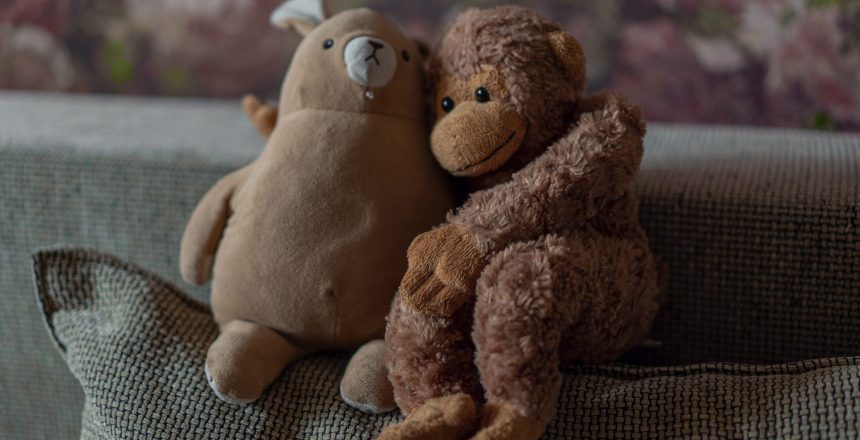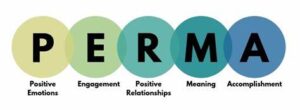The Science-Backed Benefits of Practicing Kindness Daily
As leading positive psychology researcher Dr. Sonja Lyubomirsky expresses in her book The How of Happiness, “Being kind and generous leads to healthier relationships and greater happiness.” Extensive research demonstrates how even small, regular acts of kindness and generosity can profoundly enhance happiness, health, and social connections. This article will explore the compelling scientific evidence on the many benefits of being kind and share research-based techniques to start cultivating more compassionate habits in your daily life – toward others as well as yourself. We’ll provide tips grounded in positive psychology literature on how practicing kindness can uplift your mood, reduce anxiety, strengthen your relationships, and boost overall wellbeing.
Brain Scans Reveal Biochemical Rewards of Generosity
Rigorous studies utilizing functional magnetic resonance imaging (fMRI) scans show that kind deeds stimulate pleasure centers in the brain and activate its reward circuitry. Specifically, regions like the ventral striatum and anterior prefrontal cortex – associated with dopamine production – light up when people act generously.
In essence, selfless giving triggers our brain’s “feel good” response, releasing neurochemicals like oxytocin, serotonin and dopamine. These are the same chemicals released from eating chocolate, having sex, or taking certain recreational drugs. As positive psychology researcher Dr. Barbara Fredrickson established in her influential 2001 paper “The Role of Positive Emotions in Positive Psychology,” even small acts of kindness can trigger the release of feel-good chemicals like oxytocin in the brain.
So empirical evidence confirms that being generous literally changes your brain chemistry and makes you feel happier on a biological level.
Volunteering and Charitable Giving Have Long-Lasting Mental Health Benefits
In addition to short-term neurological rewards, research reveals that sustaining a habit of generosity leads to lasting boosts in psychological wellbeing. For example, multiple studies find that volunteering time produces spikes in happiness, self-esteem and life satisfaction that can endure for months after the generous act.
Similarly, people who give money to charity on a regular basis report higher levels of overall happiness and satisfaction with life. They also experience reduced symptoms of depression and anxiety compared to non-givers.
Witnessing Acts of Kindness Uplifts Wellbeing Too
Interestingly, science confirms you don’t have to be on the giving end of kindness to reap rewards. Numerous experiments show that even observing others engage in generous deeds leads to measurable positive effects on mood and emotional health.
In studies where participants watch videos of strangers performing altruistic actions – like giving away money or helping someone in need – the observers report feeling uplifted and more satisfied with life afterward.
So whether you’re on the giving or receiving end of a kind act, or simply bearing witness, the effect tends to rub off on your own wellbeing in a positive manner.
Kindness Reduces Harmful Stress Hormones and Anxiety
Another meaningful finding from the research is that practicing compassionate habits leads to reductions in harmful stress hormones like cortisol. Studies show that practicing compassionate habits leads to reductions in harmful stress hormones like cortisol. As neuropsychologist Dr. Rick Hanson explains in his acclaimed book Hardwiring Happiness, this is due to neuroplasticity – our brains release calming neurotransmitters like dopamine and serotonin when we are kind, motivating us to repeat these actions. Cortisol is released in response to fearful stimuli as part of our innate fight-or-flight mechanism. While essential in genuinely dangerous situations, chronically elevated cortisol from everyday stress impairs cognitive function, mental health, and cardiovascular health over time.
However, studies confirm that consistently behaving in kind and generous ways inhibits unnecessary stress responses and anxiety. People measured to engage in more altruistic behaviors tend to have lower cortisol levels and be less anxious day-to-day.
Habits to Practice More Kindness in Your Daily Life
Given the extensive scientific support for the wide-ranging benefits of kindness, you may be wondering how to incorporate more generous habits into your daily actions and interactions. Thankfully, building kindness into your routine is often as simple as being more thoughtful in everyday situations:
- Warmly smile at strangers, hold doors, allow others to go first, give up your seat. These types of courtesy boost both your mood and others’.
- Give sincere compliments about little things. Express heartfelt gratitude. Validate others’ thoughts and praise accomplishments. Studies show how uplifting a few words of affirmation can be.
- Listen generously without interrupting when someone needs an ear. Display empathy, understanding, and compassion. Helping others feel heard fosters connection.
- Help strangers in need. Assist parents with strollers, help older adults carry packages, or provide directions. Look for opportunities to volunteer with organizations addressing causes important to you. Donate funds or goods to nonprofits making a positive difference.
Nurturing Self-Compassion Through Self-Kindness
While compassion toward others is essential, positive psychology research also emphasizes the importance of nurturing self-compassion in parallel. The key is to treat yourself with the same kindness, care, and understanding you would show a good friend. As self-compassion expert Dr. Kristin Neff explains, speaking to yourself with kindness and understanding helps quiet your inner critic and boost emotional wellbeing.
Strategies include:
- Replace harsh inner critics with encouraging words you’d give loved ones. Celebrate your efforts rather than judging yourself.
- Challenge negative thoughts through affirmations focused on self-acceptance. Perfection is impossible, so praise your progress.
- Meet your basic needs for rest, healthy food, leisure time, and saying no to unnecessary burdens. You can’t pour from an empty cup.
- Make time for self-care activities like creativity, music, journaling, nature walks, or spa days. Do things that enliven your spirit.
- Volunteer with organizations that resonate with your values. Helping others provides meaning while soothing self-absorption.
Design Custom Kindness Challenges to Form Habits
To help kick start new habits, positive psychology often prescribes “positive interventions” – small intentional actions performed regularly to boost wellbeing. Consider taking a simple kindness challenge, such as:
- Each day for a week, complete one act of kindness toward someone else and yourself.
- On your commute, engage in three courteous acts like holding doors, complimenting others, letting cars merge.
- Send three genuine “thank you” messages to mentors, friends, or family.
- Post three positive comments on social media praising others’ accomplishments.
- Share three daily hugs with loved ones. Physical touch releases oxytocin.
Track any positive effects on your mood, anxiety levels, self-worth and relationships. Mix up your routine once it becomes habitual. Studies show varying acts of kindness amplifies benefits by fighting hedonic adaptation.
The Scientific Case for Infusing Your Life With More Kindness
The empirical evidence paints a compelling picture: consistently making small choices from a place of compassion – rather than indifference – benefits mental and physical well-being across myriad dimensions.
While the pace of modern life often feels rushed and impersonal, we all have opportunities to touch others through ordinary goodness and generosity of spirit. Science confirms that within every human brain resides the capacity for empathy, cooperation, and altruism – traits that helped our ancestors survive and thrive in close-knit tribes. When we practice kindness habitually, we honor this legacy.
Although hardship and suffering remain an inevitable part of the human experience, choosing optimism inspires hope. Individual acts of compassion represent the best of shared humanity. With boundless creativity, we each have power to reshape society through millions of micro-moments of goodwill.
Choose To Live Your Best Life Through Small Acts of Generosity
As Lyubomirsky expresses in The How of Happiness, “Kindness is the most certain route to achieving lasting wellbeing and fulfilling relationships.”
The research substantiates that cultivating a more generous, community-focused mindset carries quantifiable emotional, psychological, and physical health dividends. However, human beings don’t need a scientific justification to be kind – it just feels right.
As the monk Matthieu Ricard writes: “Altruism is a win-win situation: it benefits both the giver and the receiver. The more we cultivate it, the more we become happy.”
In your journey of growth and self-actualization, I encourage you to make space for more generosity – both toward others and yourself. The rewards are endless.
Great Things Never Came From Comfort Zones
Say goodbye to that rut you’ve been stuck in and hello to a brighter future with enLiven Wellness Life Coaching team. Get started today by scheduling a consultation with our team.
Related Resources
enLiven Wellness Coaching, llc is a participant in the Amazon Services LLC Associates Program, an affiliate advertising program designed to provide a means for website owners to earn advertising fees by advertising and linking to amazon.com, audible.com, and any other website that may be affiliated with Amazon Service LLC Associates Program. As an Amazon Associate [I or we] earn from qualifying purchases.
Additional Articles in this Series
This article is part of a series of articles on the five pillars of well-being. The pillars are positive emotion, engagement, relationship, meaning, and accomplishment.

















